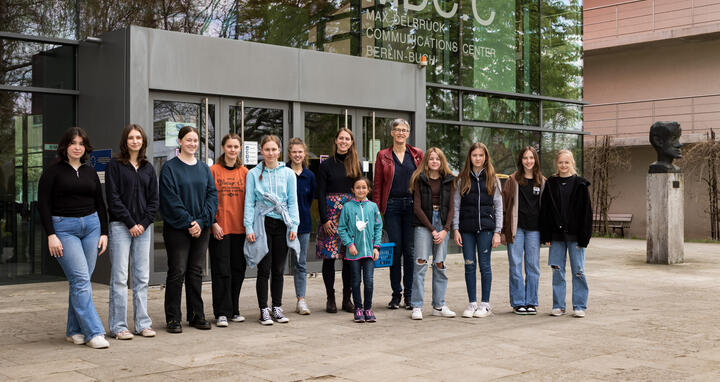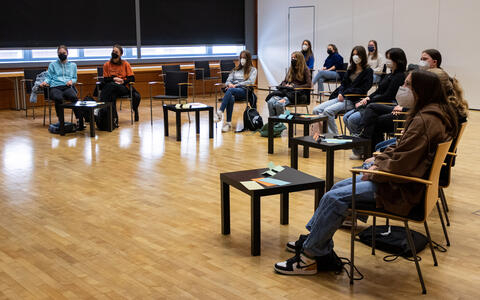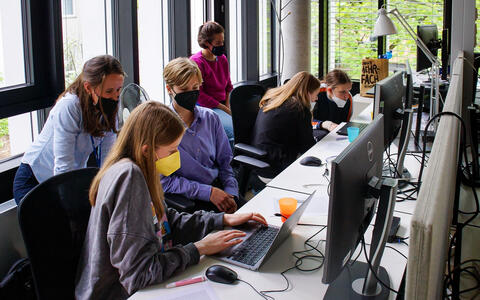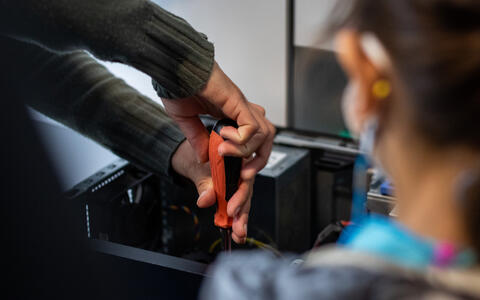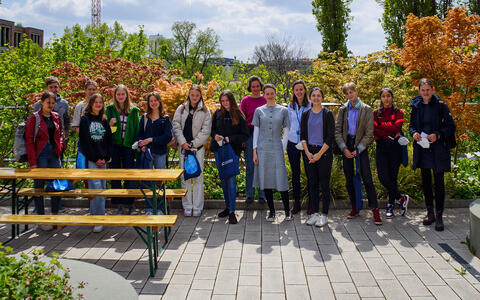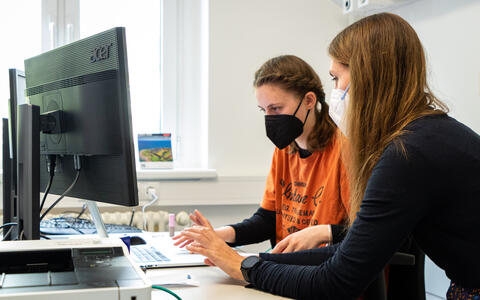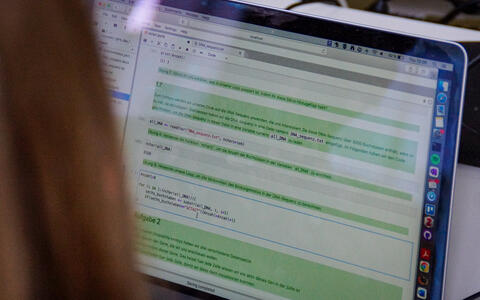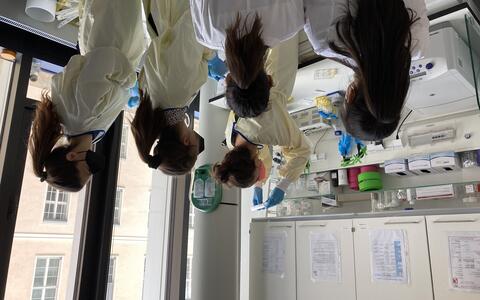Girls' Day at the MDC: Data is exciting!
Rebecca Knoll holds a PhD in pediatrics and has been working in Sofia Forslund's MDC research group since the beginning of the year. “Not long ago, I would never have thought that I would voluntarily sit at a computer all day,” she says with a smile. But she's taken a liking to bioinformatics, so much so that she now almost regrets having studied medicine and not this subject. “At the time, I simply didn't know what exciting alternatives there were to the usual career paths,” she recalls.
Closing such knowledge gaps is one of the aims of Girls' Day. This special day is all about getting enthusiastic girls interested in careers in science. In 2022, the MDC participated for the first time thanks to the initiative of the equal opportunity officers Dr. Christiane Nolte and Dr. Grietje Krabbe: Scientists from seven research groups as well as staff from the IT department of the MDC gave 21 girls from 8th and 9th grades of several Berlin and Brandenburg schools an impression of their everyday professional life.
Girls and young women on Girls' Day 2022 at the MDC.
Data sets show the reasons for obesity
Dr Rebecca Knoll, her colleague Theda Bartolomaeus and master's student Sarah Friedlmeier had come up with a complex task for the three students who were spending their Girls' Day at the Forslund Lab: Lotta, Flo and Annika should design a research project and evaluate data sets. The goal: to find out which factors lead to obesity in children and adolescents and how this excess weight can be reduced. This is a good fit for the research group. The Lab is investigating how the microbiome, i.e. the totality of microorganisms that colonize the human body, affects health
“The number of such organisms is greater than the number of cells in the body, and the gut microbiome alone weighs one to two kilograms,” Theda explained to the astonished girls. Each of them evaluated data associated with different aspects, such as how probiotics or exercise affect weight. The students tinkered with their graphs for just under an hour using the programming language R and then brought their results together. “I thought it was great that we weren't just shown something, but could work with research data ourselves,” Flo said afterwards. Annika liked it so much that she arranged an internship with Rebecca in the research group.
By broadening the range of examples provided to the next generation we help empower young women.
This was entirely in line with the group leader: “All of us are held back in different ways by how society historically, explicitly as well as implicitly by example, has told us that there is only a limited range of ways in which one can exist as a woman. By broadening the range of examples provided to the next generation we help empower them. Just like as our feminist foremothers empowered us. Few things matter more to me,” said Dr Sofia Forslund.
Jobs in IT are compatible with family life
The girls who spent Girls' Day in MDC's IT department experienced a road show through data processing. Among other things, they learned what a computer's interior looks like and how they can design a program to perform defined tasks. IT expert Petra Lange from the Applications team hopes for more young women: Only a handful of applicants usually respond to job advertisements, and of the 50 employees in the MDC's IT department, only eight are female. “Not only is the job exciting and versatile, it is also compatible with family life, because part-time work and home office are no problem for us,” Petra Lange said.
Girls' Day was also a success at the MDC campus in Berlin-Mitte. “The participants were super motivated and enthusiastic. During my visits to the groups, I saw that the teams worked together quickly and efficiently,” said Grietje Krabbe, program manager at the MDC's Berlin Institute for Medical Systems Biology (BIMSB) and co-initiator who coordinated the activities on-site. For example, researchers of the Lab of Dr Melissa Birol showed the girls what “dancing spaghetti” – aka tangled proteins – can do to the brain. Together with the girls, Miriam Faxel and Brigitte Boumann, who work as PhD students at the Labs of Dr Robert Zinzen and Dr. Laleh Haghverdi, searched for recurring segments in the DNA in fruit fly embryos and visualized which genes are being currently read (gene expression). In this way, the students witnessed how important computers are, for example, for pattern recognition.
Gain insight at the BIMSB, the MDC site in Berlin-Mitte
The host researchers were thrilled at how quickly the girls grasped these complex issues: “They said they could offer them a job right away,” Grietje Krabbe reported. During the final feedback session, it became clear that the participating girls would have liked more time to delve deeper into the exciting work assignments. Next time, the organizers will know how much motivation and cleverness they can count on.
Text: Wiebke Peters

